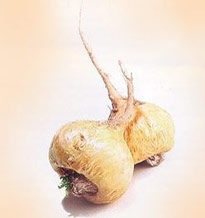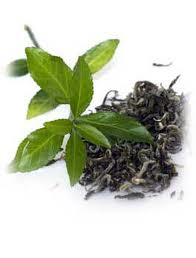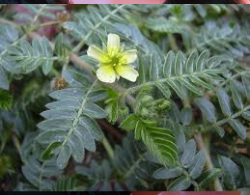Contents:
Lemon and Plum Powder ,Citric Acid, Lactose, MACA (Lepidium Perivianum Chacon), Tea Polyphenols,Tribulus Terresteris
Lemon and Plum powder: Used as a condiment
Citric Acid:Citric acid from lemons, it is natural decomposers of uric acid
Lactose: Lactose is a disaccharide sugar found in milk, it is formed
from galaktos and glucose.

MACA (Lepidium Peruvianum Chacon):
Maca (Lepidium peruvianum chacon) - is cultivated in the heights over 3400 up to 4800 meters in the mountain range of the Peruvian Andes. Maca is a tubercle that grows a few centimeters above ground in form of a perennial dense bush, producing a small pale flower and a 8-9 cm rays that is the beneficial part of the plant. Interestingly, the Maca is cultivated with seeds of biennial form, collecting the harvest between the 6 and 9 months after its plantation. Research as verified that the Maca was cultivated more than 2000 years in the Peruvian plateau of Chinchaycocha, and was also cultivated in the pre-Columbian period in the zone of Junín (Peru).
The Peruvian popular wisdom states that the Incas, due to their regular consumption of Maca, lived more than 150 years of age with a total clear mind, having children after the age of 100 years . When early Spaniards first arrived in the Andean highlands, they noticed a reduction in libido and reproduction rates, which they attributed to the high altitude. Local Andeans recommended Maca and the Spaniards noticed a markedly positive result.
Native medicine practitioners and herbalists have recommended Maca for the following:
Clinical studies:
The scientific literature sites Maca's rich composition of plant sterols, benzyl and p-methoxybenzyl glucosinolates, which are known to improve sexual enhancement. According to a recent study published in the April 2000 issue of Urology, Maca significantly improved erectile dysfunction and increased libido in mice and rats treated with the extract. Unfortunately, without the extensive financial backing of the large pharmaceutical companies few clinical studies involving humans have been completed.
Modern day uses:
Maca is rich in essential minerals, especially iodine, iron, calcium, magnesium, and phosphorous and includes fatty acids including linolenic, palmitic and oleic acids, and polysaccharides. Most individuals know that iodine, calcium magnesium and phosphorous are essential minerals for our well-being but, what about the benefits of linolenic, palmitic and oleic acids, polysaccharides and Linolenic acid? Today, physicians and herbal specialist prescribe Maca for the following:
Precautions and/or side effects:
Maca, is essentially void of any toxicity of side effects making it one of the safest herbal products available. Individuals with preexisting medical conditions should consult with their physician particularly if they are taking prescription or over-the-counter-medications or supplements. Women who are pregnant or breast feeding and children should also consult with there physician prior to taking any new supplements. There have been no significant side effects reported with the use of Maca at the time of this writing
Maca (Lepidium peruvianum chacon) - is cultivated in the heights over 3400 up to 4800 meters in the mountain range of the Peruvian Andes. Maca is a tubercle that grows a few centimeters above ground in form of a perennial dense bush, producing a small pale flower and a 8-9 cm rays that is the beneficial part of the plant. Interestingly, the Maca is cultivated with seeds of biennial form, collecting the harvest between the 6 and 9 months after its plantation. Research as verified that the Maca was cultivated more than 2000 years in the Peruvian plateau of Chinchaycocha, and was also cultivated in the pre-Columbian period in the zone of Junín (Peru).
The Peruvian popular wisdom states that the Incas, due to their regular consumption of Maca, lived more than 150 years of age with a total clear mind, having children after the age of 100 years . When early Spaniards first arrived in the Andean highlands, they noticed a reduction in libido and reproduction rates, which they attributed to the high altitude. Local Andeans recommended Maca and the Spaniards noticed a markedly positive result.
Native medicine practitioners and herbalists have recommended Maca for the following:
- Enhancing libido, treating impotence
- Stimulating and regulating the endocrine system, including the adrenals, the thyroid, the ovaries, and the testes
- Stimulating fertility in both men and women
- Increasing energy, stamina and endurance, reducing chronic fatigue
- Stimulating the immune system
- This product has been geared primarily to men, not women.
Clinical studies:
The scientific literature sites Maca's rich composition of plant sterols, benzyl and p-methoxybenzyl glucosinolates, which are known to improve sexual enhancement. According to a recent study published in the April 2000 issue of Urology, Maca significantly improved erectile dysfunction and increased libido in mice and rats treated with the extract. Unfortunately, without the extensive financial backing of the large pharmaceutical companies few clinical studies involving humans have been completed.
Modern day uses:
Maca is rich in essential minerals, especially iodine, iron, calcium, magnesium, and phosphorous and includes fatty acids including linolenic, palmitic and oleic acids, and polysaccharides. Most individuals know that iodine, calcium magnesium and phosphorous are essential minerals for our well-being but, what about the benefits of linolenic, palmitic and oleic acids, polysaccharides and Linolenic acid? Today, physicians and herbal specialist prescribe Maca for the following:
- Rheumatoid arthritis – studies have shown that these acids and polysacharides in Maca reduce inflammation in joints and tissues.
- Diabetes – supplementing these acids and polysaccharides assists nerve function and prevents nerve damage caused by diabetes.
- Cancer - the acids and polysaccharides help suppress tumor growth specifically in breast cancer and melanoma.
- Heart disease - linolenic, palmitic and oleic acids, and polysaccharides help prevent heart disease by preventing arteriole sclerosis plaque formation, dilating blood vessels, and reducing blood pressure.
- Ophthalmic - linolenic acid is beneficial in Sjögren's syndrome and may be useful in other dry eye conditions.
- Menstrual complications - essential fatty acids such as linolenic acid and palmitic and oleic acid, reduce inflammation and support hormone production.
- Linolenic acid - has also been shown to reduce the symptoms of alcoholism, atopic dermatitis, and osteoporosis.
Precautions and/or side effects:
Maca, is essentially void of any toxicity of side effects making it one of the safest herbal products available. Individuals with preexisting medical conditions should consult with their physician particularly if they are taking prescription or over-the-counter-medications or supplements. Women who are pregnant or breast feeding and children should also consult with there physician prior to taking any new supplements. There have been no significant side effects reported with the use of Maca at the time of this writing

Tea Polyphenols:
Tea polyphenols are chemical compounds such as flavanoids and tannins found naturally in tea. Depending on how the tea is harvested, handled, processed, and brewed, the polyphenol level in the tea can vary. These chemical compounds are believed to be beneficial to human health, and they are the basis of many claims made about the health benefits of tea. As with many natural compounds which appear to be beneficial to human health, it is difficult to isolate and study tea polyphenols on their own, and some researchers have suggested that their actions in the body may actually be the result of several compounds working together.
Polyphenols are most definitely antioxidants, which means that they can reduce the risk of developing coronary artery disease and a number of other health problems. The polyphenols found in tea have also been linked with cancer reduction, as they appear to block the action of some enzymes linked with cancer. Because cancer is so complex and it can be influenced by many environmental and genetic factors, scientists are reluctant to say that tea polyphenols will categorically prevent cancer, although cancer rates do seem to be lower in tea drinkers after controls for other obvious factors like diet are used to evaluate the data.
The flavor of tea is also influenced by tea polyphenols. Tannins, found in high concentrations in black tea and lower concentrations in green and white tea, lend tea its distinctive dark color and bitter, sharp flavor. Other polyphenols can also change the color of the tea, making it more reddish or brown depending on how it is handled, and the subtle and distinctive flavors of well-processed teas are due in part to polyphenols.
The chemicals identified as being present in tea can also be found in other plants. Tea polyphenols, in other words, are not limited to tea, and they in fact appear in most plants. Grapes are another excellent source of these antioxidant chemicals, as are bright fruits and vegetables. Eating a diet rich in plant material confers a number of health benefits, including the benefits of polyphenols.
Tea polyphenols are chemical compounds such as flavanoids and tannins found naturally in tea. Depending on how the tea is harvested, handled, processed, and brewed, the polyphenol level in the tea can vary. These chemical compounds are believed to be beneficial to human health, and they are the basis of many claims made about the health benefits of tea. As with many natural compounds which appear to be beneficial to human health, it is difficult to isolate and study tea polyphenols on their own, and some researchers have suggested that their actions in the body may actually be the result of several compounds working together.
Polyphenols are most definitely antioxidants, which means that they can reduce the risk of developing coronary artery disease and a number of other health problems. The polyphenols found in tea have also been linked with cancer reduction, as they appear to block the action of some enzymes linked with cancer. Because cancer is so complex and it can be influenced by many environmental and genetic factors, scientists are reluctant to say that tea polyphenols will categorically prevent cancer, although cancer rates do seem to be lower in tea drinkers after controls for other obvious factors like diet are used to evaluate the data.
The flavor of tea is also influenced by tea polyphenols. Tannins, found in high concentrations in black tea and lower concentrations in green and white tea, lend tea its distinctive dark color and bitter, sharp flavor. Other polyphenols can also change the color of the tea, making it more reddish or brown depending on how it is handled, and the subtle and distinctive flavors of well-processed teas are due in part to polyphenols.
The chemicals identified as being present in tea can also be found in other plants. Tea polyphenols, in other words, are not limited to tea, and they in fact appear in most plants. Grapes are another excellent source of these antioxidant chemicals, as are bright fruits and vegetables. Eating a diet rich in plant material confers a number of health benefits, including the benefits of polyphenols.

Tribulus Terresteris:
Other Names: Puncture vine
Tribulus terrestris is a herb that has been used in the traditional medicine of China and India for centuries.
In the mid-1990s, tribulus terrestris became known in North America after Eastern European Olympic athletes said that taking tribulus helped their performance.
The active compounds in tribulus are called steroidal saponins. Two types, called furostanol glycosides and spirostanol glycosides, appear to be involved with the effects of tribulus. These saponins are found primarily in the leaf.
Why Do People Use Tribulus?Tribulus is most often used for infertility, erectile dysfunction, and low libido. In the last decade, it has become popular to improve sports performance.
Tribulus has been marketed these conditions because research performed in Bulgaria and Russia indicates that tribulus increases levels of the hormones testosterone (by increasing luteinizing hormone), DHEA, and estrogen. The design of these research studies, however, has been questioned.
A more recent study found that four weeks of tribulus supplements (at 10 to 20 milligrams per kg of body weight daily) had no effect on male sex hormones testosterone, androstenedione, or luteinizing hormone compared to people who did not take tribulus.
Erectile Dysfunction
Preliminary animal studies found that tribulus heightened sexual behavior and increased intracavernous pressure. This was attributed to increases in testosterone. There haven't been any well-designed human studies to confirm these early findings.
Body Composition and Exercise Performance
Although tribulus has become popular as a sports performance aid, one small but well-designed study found it has no effect on body composition or exercise performance. Fifteen subjects were randomly assigned to tribulus (3.21 mg per kg body weight daily) or a placebo.
After eight weeks with resistance training, there were no changes in body weight, percentage fat, dietary intake, or mood in either group. What was surprising was that muscle endurance actually improved more in the placebo group. Muscle endurance (determined by the maximum number of repetitions at 100 to 200% of body weight) increased for the bench and leg presses in the placebo group. The tribulus group experienced an increase in leg press strength only.
Other Names: Puncture vine
Tribulus terrestris is a herb that has been used in the traditional medicine of China and India for centuries.
In the mid-1990s, tribulus terrestris became known in North America after Eastern European Olympic athletes said that taking tribulus helped their performance.
The active compounds in tribulus are called steroidal saponins. Two types, called furostanol glycosides and spirostanol glycosides, appear to be involved with the effects of tribulus. These saponins are found primarily in the leaf.
Why Do People Use Tribulus?Tribulus is most often used for infertility, erectile dysfunction, and low libido. In the last decade, it has become popular to improve sports performance.
Tribulus has been marketed these conditions because research performed in Bulgaria and Russia indicates that tribulus increases levels of the hormones testosterone (by increasing luteinizing hormone), DHEA, and estrogen. The design of these research studies, however, has been questioned.
A more recent study found that four weeks of tribulus supplements (at 10 to 20 milligrams per kg of body weight daily) had no effect on male sex hormones testosterone, androstenedione, or luteinizing hormone compared to people who did not take tribulus.
Erectile Dysfunction
Preliminary animal studies found that tribulus heightened sexual behavior and increased intracavernous pressure. This was attributed to increases in testosterone. There haven't been any well-designed human studies to confirm these early findings.
Body Composition and Exercise Performance
Although tribulus has become popular as a sports performance aid, one small but well-designed study found it has no effect on body composition or exercise performance. Fifteen subjects were randomly assigned to tribulus (3.21 mg per kg body weight daily) or a placebo.
After eight weeks with resistance training, there were no changes in body weight, percentage fat, dietary intake, or mood in either group. What was surprising was that muscle endurance actually improved more in the placebo group. Muscle endurance (determined by the maximum number of repetitions at 100 to 200% of body weight) increased for the bench and leg presses in the placebo group. The tribulus group experienced an increase in leg press strength only.
